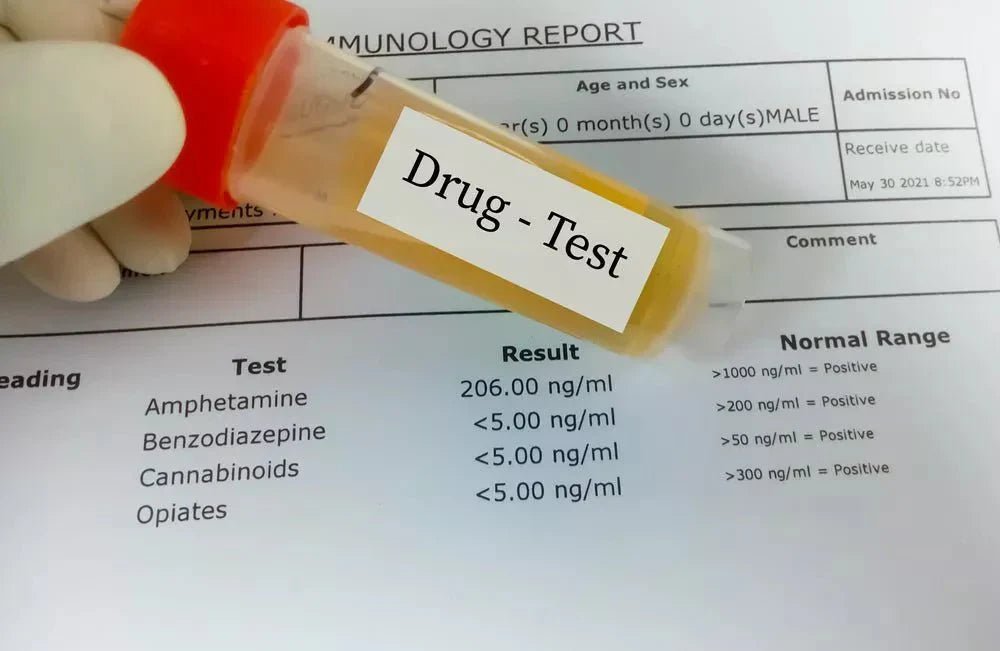Recent posts
-

-
 What Are THCa Diamonds?October 14, 2025
What Are THCa Diamonds?October 14, 2025 -
 Delta 9 Gummies GuideOctober 8, 2025
Delta 9 Gummies GuideOctober 8, 2025 -
 Head High vs Body High: A Guide to Cannabis EffectsOctober 1, 2025
Head High vs Body High: A Guide to Cannabis EffectsOctober 1, 2025 -
 What is THCA Crumble?September 22, 2025
What is THCA Crumble?September 22, 2025 -
 10 Ways to Elevate Self-Care Awareness MonthSeptember 14, 2025
10 Ways to Elevate Self-Care Awareness MonthSeptember 14, 2025

Delta-8 THC: Legality, Drug Tests, and Everything You Need to Know
By Zero Point
Table of Contents
Introduction
As an increasingly popular cannabinoid, Delta-8 THC has caught the attention of both consumers and regulators. In this comprehensive guide, we'll delve into the legal aspects of Delta-8, its presence on drug tests, and other essential information.
Understanding Delta-8 THC
Delta-8 THC, or Delta-8-tetrahydrocannabinol, is a naturally occurring compound found in the cannabis plant. It is an isomer of the more widely known Delta 9 THC, but with slight differences in its molecular structure. These differences result in distinct effects on the body, making Delta-8 THC a subject of interest for researchers, consumers, and the cannabis industry.
Is Delta-8 THC Legal?

The legality of Delta-8 THC depends on the source from which it is derived and the specific regulations in place within a given jurisdiction. In the United States, the 2018 Farm Bill legalized hemp and its derivatives containing less than 0.3% Delta-9 THC. Since Delta-8 can be produced from hemp, it is considered federally legal if it meets this requirement.
However, individual states have the authority to set their own rules and regulations around Delta-8 THC. Some states have chosen to ban or restrict its production, sale, and possession. It is crucial to stay informed about the specific laws in your location to ensure compliance.
Delta-8 THC Drug Tests: What to Expect
Standard drug tests, such as those used by employers, typically screen for the presence of THC or its metabolites. As Delta-8 THC and Delta-9 THC share a similar chemical structure, it is possible that Delta 8 THC may trigger a positive result on a drug test. However, specific tests designed to differentiate between Delta-8 and Delta-9 do exist, but they are less common.
To minimize the risk of a false positive, it is essential to be aware of the type of drug test being administered and the potential implications of using Delta-8 THC products.
Delta 8 Detection on Drug Tests
| Test Type | Typical Detection Window | Will Delta-8 Show Positive? | Notes |
|---|---|---|---|
| Urine (immunoassay) | 3–30 days (chronic use) | Yes | Detects THC-COOH, same as delta-9 THC |
| Blood | 1–2 days | Yes | Not common for workplace or court testing |
| Hair | 90+ days | Yes | Rarely used, but detects all cannabinoids |
| Saliva | 1–2 days | Yes | Not reliable for D8 vs. D9 differentiation |
Tip: Even though delta-8 and delta-9 are chemically different, both are broken down into THC-COOH and will trigger a positive result on standard tests.
Benefits and Side Effects of Delta-8 THC
Delta-8 THC has been reported to offer various potential benefits, including:
- Pain relief
- Anti-nausea
- Appetite stimulation
- Stress reduction
- Improved mood
However, as with any cannabinoid, there are potential side effects associated with Delta-8 THC use. These may include:
- Dry mouth
- Red eyes
- Dizziness
- Fatigue
- Impaired motor function
It is important to consult with a healthcare professional before using Delta-8 THC products, particularly if you have a pre-existing medical condition or are taking other medications.
Delta-8 THC vs. Delta-9 THC

While both Delta-8 and Delta-9 are psychoactive compounds, they differ in potency and effect profiles. Delta-8 THC is often described as providing a milder, more clear-headed high compared to the more potent Delta 9 THC. This distinction has led many users to prefer Delta-8 for its ability to reduce anxiety and produce a more functional experience.
Key differences between Delta-8 THC and Delta-9 THC include:
- Potency: Delta-8 THC is generally considered less potent than Delta-9 THC, resulting in a less intense high.
- Anxiety: Delta-8 THC has been reported to cause less anxiety and paranoia than Delta-9 THC, making it a more suitable option for those sensitive to these effects.
- Legality: While both compounds are subject to varying legal restrictions, Delta-8 THC is more likely to be legal in certain jurisdictions due to its association with hemp.
Safe Usage of Delta-8 THC
To ensure the safe and responsible use of Delta 8 THC products, consider the following guidelines:
1. Start with a low dose: If you are new to Delta-8 THC, begin with a small amount and gradually increase your dosage to find your optimal level.
2. Be patient: Delta-8 THC may take longer to produce effects than Delta-9 THC, so give yourself time to assess the impact before consuming more.
3. Purchase from reputable sources: Ensure that the Delta-8 THC products you purchase come from trustworthy manufacturers with transparent lab testing and quality control measures in place.
4. Be cautious when mixing with other substances: Combining Delta-8 THC with alcohol, prescription medications, or other substances can lead to adverse effects. Consult with a healthcare professional before combining Delta-8 THC with other substances.
5. Store safely: Keep Delta 8 THC products out of reach of children and pets, and store them in a cool, dark place to maintain their potency and freshness.
Conclusion
Delta 8 THC has garnered attention for its unique effects and legal status. As research continues to explore its potential benefits and risks, it is crucial to stay informed about the evolving landscape of Delta-8 regulation and usage. By understanding the legality, drug test implications, and responsible use practices, you can make informed decisions about incorporating Delta-8 THC into your wellness routine.
As with any cannabis product, it is essential to consult with a healthcare professional before using Delta-8 THC, especially if you have pre-existing medical conditions or are taking other medications. By staying informed and following safe usage guidelines, you can ensure a positive and responsible experience with Delta-8 THC.
Remember, the legality of Delta 8 THC varies by jurisdiction, so be sure to familiarize yourself with local regulations and always comply with the laws in your area. As the cannabis industry continues to evolve, so too will our understanding of cannabinoids like Delta-8 and their potential applications for health and wellness.








